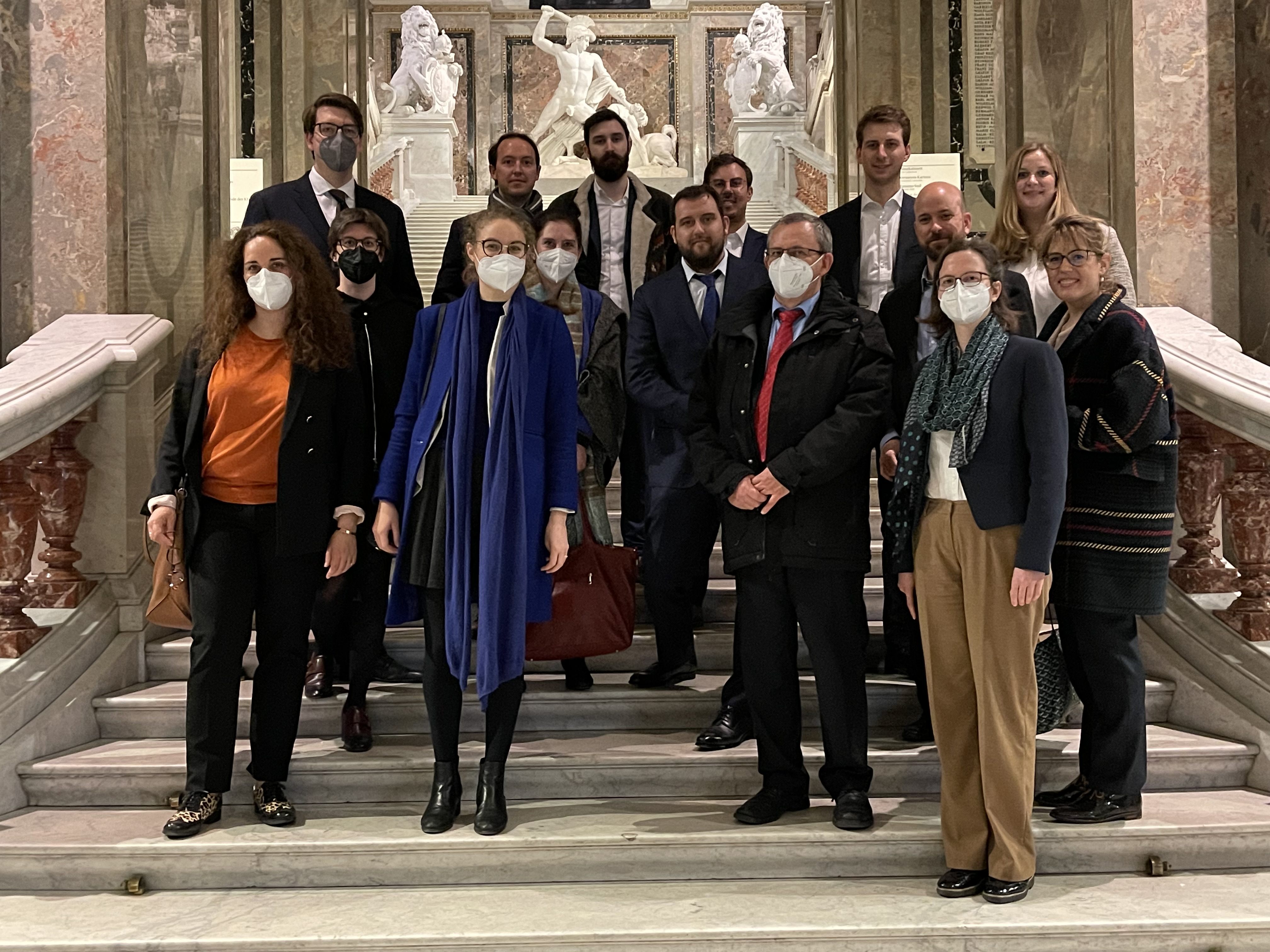
Ifri & KAS Program on Multilateralism: Vienna meeting
In the framework of the program on multilateralism launched by the Konrad-Adenauer-Stiftung (KAS) Frankreich and Ifri, our 2nd meeting with the friendly support of the KAS Wien was held in Vienna.

During three days we focused on four topics:
- nuclear non-proliferation & nuclear disarmament verification,
- arms control, confidence-building measures and transparency,
- challenges posed to multilateralism in Outer space, and
- combatting crime on a regional and global level/illegal trafficking.
After a first meeting on organized crime and the specific case of combatting illegal trafficking with Andrea Salvoni, Executive Programme Officer at the Organization for Security and Co-operation in Europe (OSCE), Ian Tennant, the Head of Vienna Multilateral Representation & Resilience Fund, Global Initiative Against Transnational Organized Crime, Eduard Ivanov, Senior Researcher at the International Anti-Corruption Academy (IACA), and Petra Schneebauer, Head of Section at the Austrian Ministry of Foreign Affairs, we headed to a debate about nuclear non-proliferation and nuclear disarmament applied to the Middle East, where we had the pleasure to discuss with Heinz Gärtner from the International Institute for Peace, Gudrun Harrer from Der Standard and Stephan Klement from the European External Action Service which was the occasion to focus on the Joint Comprehensive Plan of Action (JCPOA) and its regional implications. We then had the occasion to deepen the topic of non-proliferation with Alexander Kmentt from the Austrian Ministry of Foreign Affairs, Tariq Rauf from Atomic Reporters and Alice Saltini from the Comprehensive Nuclear-Test-Ban Treaty Organization.
On the following day we very much enjoyed meeting with the French Ambassador to Austria Gilles Pécout and the Deputy Head of Mission at German Embassy in Vienna Rainer Ruldolph who gave us an insight on their work and the bilateral relations with their Austrian counterparts.
We were pleased to then be invited to exchange with the European Space Policy Institute (ESPI) on space matters. Special thanks to Jean-Jacques Tortora, ESPI’s Director, Sebastien Moranta, ESPI’s Research Manager, Marco Aliberti, Associate Senior Fellow at the ESPI, Tomas Hrozensky, Matija Rencelj & Mathieu Bataille, Research Fellows at the ESPI.
After having received insights on the European Space Strategy in a changing global context, rising international stakes for space safety & sustainability and paradigm changes for space, security and defense, we digged deeper into the OSCE’s work addressing tensions in Transnistria thanks to Thomas Mayr-Harting, the Special Representative of the OSCE Chairperson-in-Office for the Transdniestrian Settlement Process. We then had a deeper look into the cases of Abkhazia, South Ossetia and Nagorno-Karabakh with Tuula Yrjölä, the Director of the OSCE Conflict Prevention Centre and Deputy Head of the OSCE Secretariat. We had also the opportunity to talk with Martin Sajdik, the former OSCE Ukraine Special Envoy, about the developments in the past years in the Ukraine to better understand the circumstances that led to the current war launched by Russia against the Ukraine.
The OSCE received a prominent place in our program with Luca Fratini, the Director of the OSCE Office of the Secretary-General, and Robin Mossinkoff, the Chief of the Communications and Technology Unit at the Conflict Prevention Centre of the OSCE, discussing on arms control, confidence building measures and transparency in the frame of the OSCE. Loïc Simonet, Researcher at the Austrian Institute for International Affairs (oiip) acted as a discussant.
We were also honored to have among our speakers Anton Pelinka, former Professor for Political Science, University of Innsbruck, Thomas Angerer from the University of Vienna and Florian Korczak, Security Policy Director at the Austrian Ministry of Foreign Affairs, along a debate we organized on the topic of neutrality based on the Austrian example. We addressed the status of neutrality today as compared to 1955 and in how far a new debate is currently unfolding on the maintaining of neutrality against the backdrop of the current war in the Ukraine.
Our Friday program started with a discussion with the Head of Secretariat of the Wassenaar Arrangement, Philip Griffiths, on Export Controls for Conventional Arms and Dual-Use Goods and Technologies.
The program closed on the Balkans, and more specifically Bosnia and Herzegovina and the Dayton Agreement, where we were pleased to listen to former High Representative for Bosnia and Herzegovina Valentin Inzko’s introductory statement which was followed by an exchange with Vedran Dzihic from the oiip moderated by Florent Marciacq, Deputy Secretary-General and Research Fellow at the Austro-French Centre for Rapprochement in Europe.


